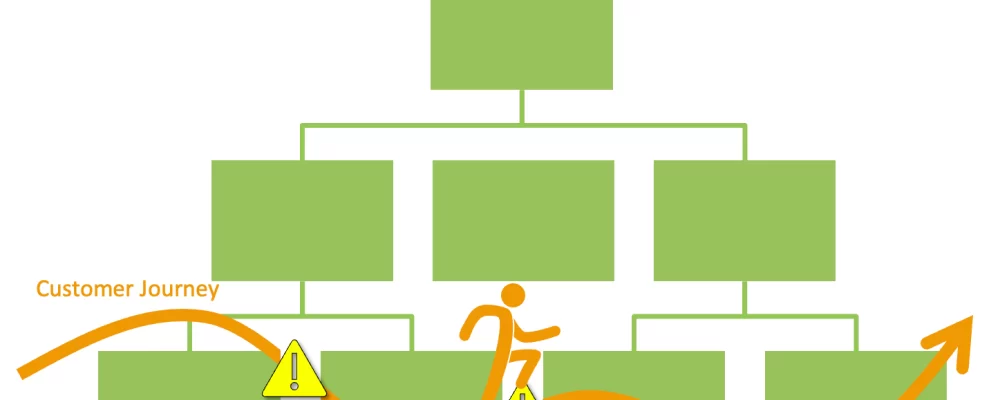We live in a time of radical business evolution. Technological innovations are fundamentally changing industries, businesses, and customer journeys. This major shake-up is aptly named digital disruption for its ability to do everything from disturbing to reinvigorating how we do business. And there is no time like now to ask, “How does digital disruption impact businesses?”
Join us for a close look at the business impacts of digital disruption. We explore various examples of digital disruption, look at businesses affected by digital disruption, and share our thoughts on how your business can navigate the change head-on.
How does digital disruption impact businesses?
Digital disruption is reshaping businesses across sectors. It challenges traditional business models by leveraging technology to create cutting-edge, customer-centric processes within the customer journey. Here’s what that looks like:
- Increases Customer Satisfaction – Digital disruption inspires businesses to transform the customer experience into a Purposeful Customer Journey. This includes leveraging behavioral economics, CX design tools, quantitative demographics, and qualitative personas to define an end-to-end Choice Architecture that leads to the ultimate customer satisfaction.
- Supercharges Growth – When companies stay in their comfort zone, they will inevitably be passed by the competition. Companies can turn to Transformational Change Management to take their business to the next level from the inside out.
- Improves the Workplace – Digital disruption infuses new technologies and innovative solutions into the workplace. For example, Project Management Platforms deliver both Run & Improve projects intended to operate the business and Transformation projects intended to change the business so companies can make the most of their efforts.
Digital Disruptor Examples
Digital disruption takes many forms, including the following:
- Smartphones – Smartphones are ubiquitous and have largely eclipsed landlines and payphones. A notable example of digital disruption is journeys initiated on a mobile device when a customer may multitask or cannot devote 100% of their attention to the device.
- Email – While snail mail still holds a firm footing, email has changed the game of written communications. Paperless statements and immediate correspondence are now the default.
- Artificial Intelligence – Innovations in AI technology continually provoke new levels of digital disruption. From retail chatbots to facial recognition technology and beyond, AI is changing the ways businesses make decisions and complete tasks.
Businesses Affected by Digital Disruption
Airlines
Airlines were one of the first sectors to acknowledge and leverage this situation – for example, today, an overwhelming majority of passengers use the airline’s mobile app to:
- Check-in for their flight.
- Download their boarding pass.
- Check on flight status.
In fact, some innovative airlines are leveraging that information and the phone’s Bluetooth ID to ‘enable’ touchless purchasing onboard the aircraft – using the stored payment method specified by the customer during ticket purchase, eliminating the need to provide the card during an inflight purchase (food, drinks, wifi, etc.).
Cable TV and Blockbuster
Digital disruption knocked cable TV and Blockbuster videos off their pedestals in the video broadcasting and rental industries. At first, Netflix’s DVD rental kiosks replaced brick-and-mortar VHS rentals. Now, on-demand viewing is the industry standard. New online TV platforms are emerging, and even conventional carriers are joining the video streaming party.
Healthcare
Digital innovations are transforming the healthcare sector by enabling telemedicine, on-demand healthcare, AI-powered diagnostics, and more. These new technologies improve patient care quality, precision, and efficiency. At the same time, digital disruption is forcing the industry to tighten privacy and security protocols to manage electronic health records safely and protect personal data.
Fintech
Due to tight regulatory limitations and structural parameters, the financial industry relies heavily on traditional banking. However, the financial sector has evolved to incorporate new technologies and tackle emerging threats in recent years. Both businesses and consumers use digital tools to accomplish financial tasks, from making daily payments to managing wealth at a high level. Cyber security protocols are continually developed to protect critical business and private information that cycles through the financial system.
How Your Business Should Deal with Digital Disruption
Whether you like it or not, digital disruption is something that every business and customer must contend with. When you are ready to embrace the challenge and leverage new technologies to drive market shifts, we are here to help.
If you would like to assess your organization’s exposure to the impact of digital disruption, we have created a quick, 4-minute digital disruption assessment that evaluates the organization across four specific domains:
- Value Innovation/Customer Experience – The organization’s ability to design and deliver a meaningful customer experience at a lower cost.
- Operational Innovation/Agility – The organization’s ability to re-align human capital, business processes, and current technology to anticipate and capitalize on market shifts.
- Organizational Engagement – The organization’s ability to promote employee experiences and build alignment through communication and active participation.
- Financial Health – The organization’s ability to allocate capital to create value for stakeholders.
Upon completion, we will send out a free, personalized report that compares your organization against a baseline and offers advice on improving your digital disruption resilience and BMI efforts.
To jumpstart your Business Model Innovation journey, take our Digital Disruption Assessment.
Accelare “provides digital transformation consulting services that prioritize performance and results. Accelare’s S2E process and WorkFit are proven to create dramatic breakthroughs and lasting innovations integrated into the business model to build the capacity needed to transform into your next-generation business model.”
Please visit the firm link to site






